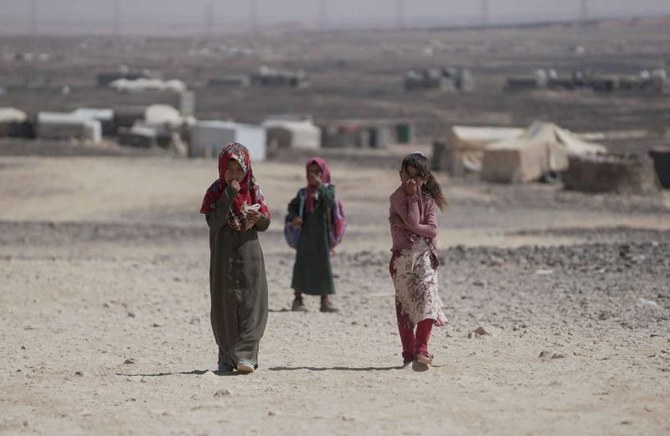
- ARAB NEWS
- 29 Apr 2024

AL-MUKALLA: Authorities in the central Yemeni province of Marib have warned that tens of thousands of internally displaced people are at risk of hunger in the wake of a UN decision to cut off humanitarian aid due to insufficient funding.
Abd-Rabbu Meftah, deputy governor of Marib province, feared that if the UN did not resume its relief work there, more than 60 percent of Yemen’s IDPs living in Marib could starve.
Several hunger-related cases had reportedly already been documented at displacement camps.
“There are warning signs of malnutrition among the displaced people in Marib province. The United Nations and humanitarian organizations must recognize that 62 percent of displaced individuals in the republic are in need of relief,” Meftah said.
Local officials in Marib noted that more than 2 million people — more than 60 percent of Yemen’s displaced people — were currently living in the city after fleeing conflict or Houthi repression in their home areas and most of them were in dire need of food, shelter, and medicine.
The authorities’ request for expedited food assistance came after local media reported that provincial health officials had documented numerous cases of severe malnutrition among displaced residents in Marib.
Khaled Al-Shajani, deputy head of the internationally recognized government’s executive unit for camps for the internally displaced in Marib, told Arab News on Monday that his office had registered the arrival of more than 16,000 displaced individuals in Marib since January.
And he said some UN entities had already begun reducing the amounts of food baskets, cash, and other aid distributed to displaced people and health facilities in Marib.
“This (aid reduction) represents a potential humanitarian catastrophe for the province’s displaced and poor. Humanitarian needs are significant, while interventions are decreasing,” Al-Shajani added.
Due to a “critical” lack of funds, the World Food Programme has announced that food assistance in Yemen will be reduced further in the coming months, a move anticipated to impact on millions of needy Yemenis, including displaced people in Marib.
The cuts were not only likely to hit those who relied on food baskets, but additional 1.4 million people benefitting from the WFP’s malnutrition prevention activities, and more than 3 million pupils fed by the WFP School Feeding program.
In a statement, the WFP’s Yemen representative, Richard Ragan, said: “We are confronted with the incredibly tough reality of making decisions to take food from the hungry to feed the starving while millions of Yemenis continue to rely on us for survival.
“We do not take this decision lightly and are fully cognizant of the suffering these cuts will cause.”
The Saudi aid agency, KSrelief, has begun distributing thousands of food hampers to Yemenis in Marib and other provinces in the country to fill the void left by the UN’s aid reductions.